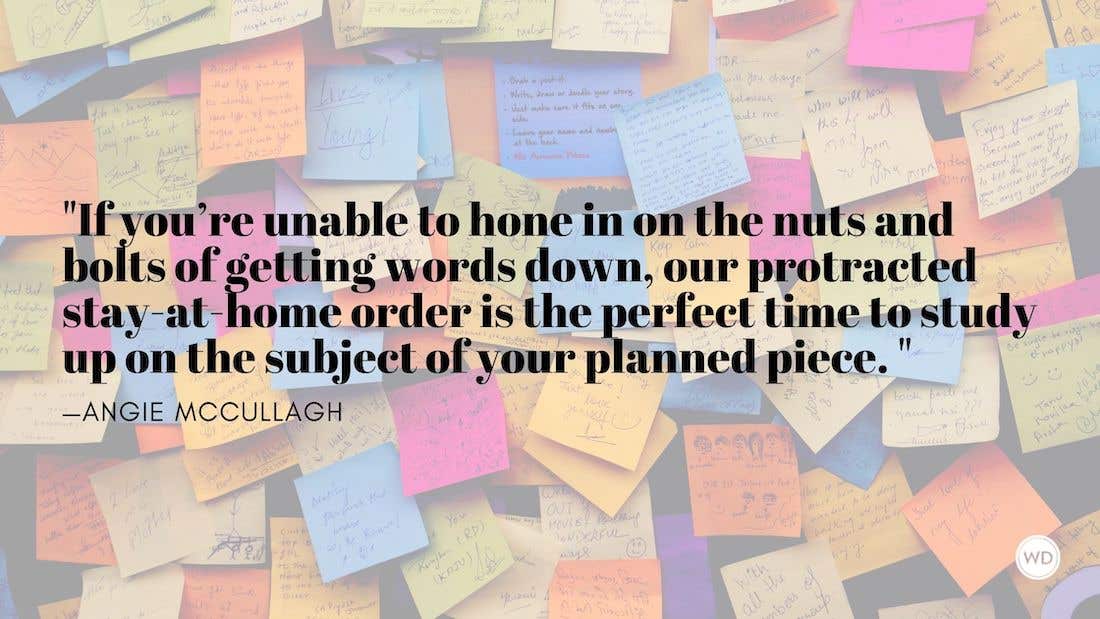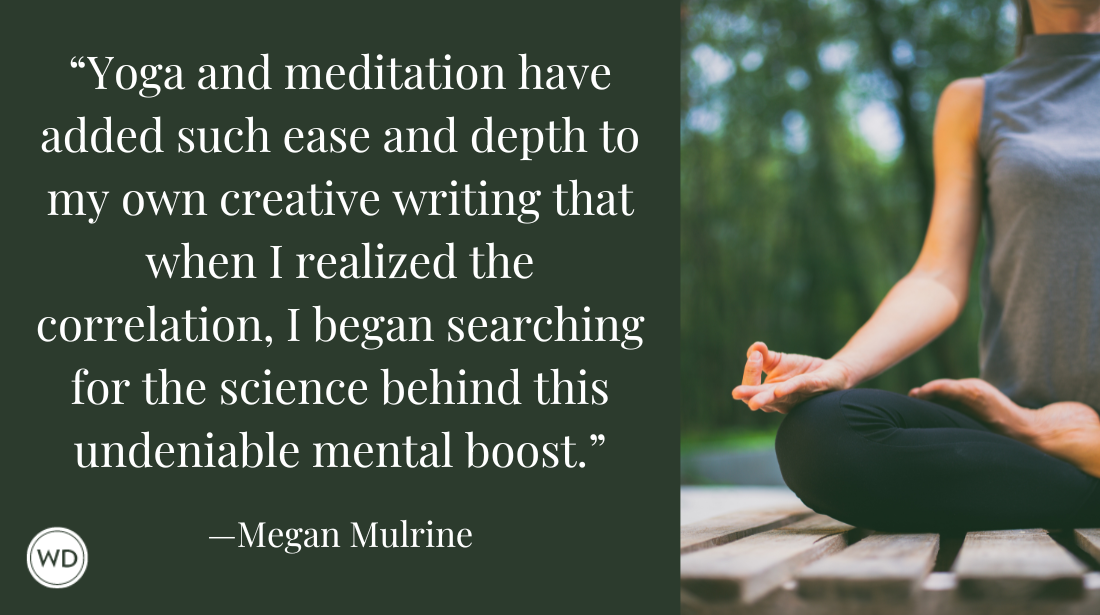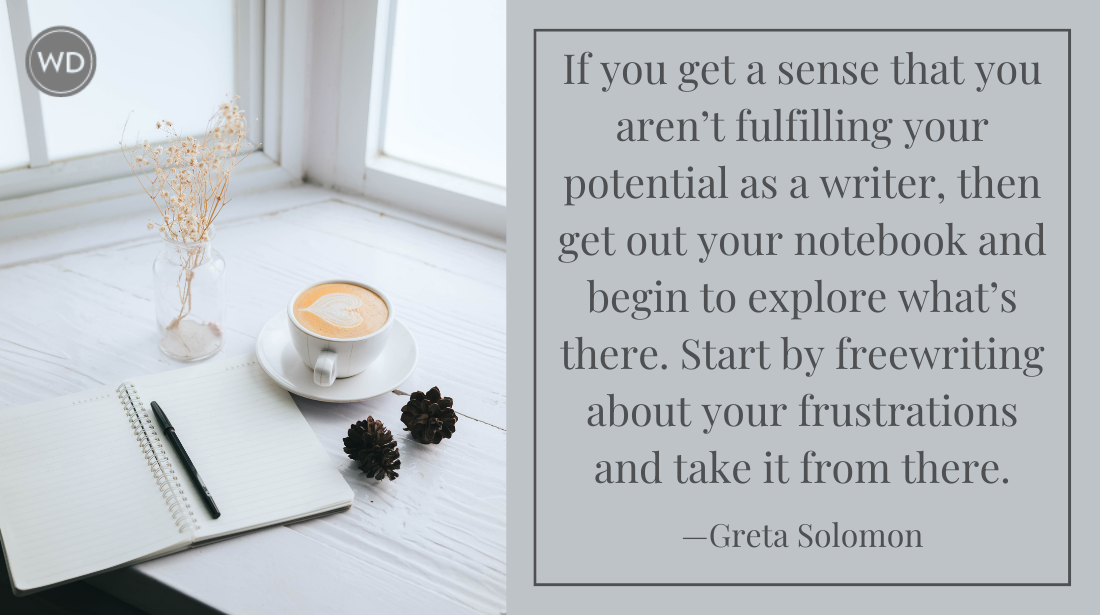Is Writing Inspiration or Perspiration?
Do we owe our best writing to our creative muse or to days and nights of backbreaking effort? The answer may surprise you.
At the keyboard, we’ve all experienced those moments of divine creative intervention when our muse bursts forth—ideas flow into inspired sentences, paragraphs, and chapters. Likewise, no writer is exempt from those times when each word we type feels like agony. So which is it: Is our best writing purely the product of inspiration, when we hurl beautiful phrases to the page or does our real brilliance come only through sheer perspiration? It’s the writer’s paradox—and it’s far more complicated than Thomas Edison’s oft-quoted figure that genius is 1 percent of the former, and 99 percent of the latter. Understanding the dynamics of each and how they relate to our finished written work can help us capitalize on our most inspired times and push through our most difficult moments.
Here are four ways to do just that.
REMEMBER THE CLUTCH-HITTING PHENOMENON.
I recently came across an interesting study of baseball clutch hitters. It turns out that players who seem to have a knack for coming through when the game is on the line actually have similar statistics whether it’s the bottom of the ninth or the top of the first. As author Dan Fox detailed in the Pittsburgh Post-Gazette, “What they’ve found is that while there may be a small clutch ability … that ability is dwarfed by the normal differences in overall performance. In other words, in the bigger scheme of things, it’s the best players who do best in the clutch.”
Taking that analogy from the diamond to the keyboard, it’s the writer’s patient, consistent dedication to the craft in the mundane (perspiration) that fosters moments of brilliance (inspiration) at bat. Freelance editor Andrew Meisenheimer puts it this way: “Perspiration leads to inspiration, even though that seems counterintuitive.”
Many of us, whether we realize it or not, dream of being “clutch writers.” When I speak at writing conferences around the nation, I always tell the story of my long journey to publication, including my 10 years of writing in obscurity, perspiring over hundreds of thousands of words before anyone ever expressed interest. But I find most people latch on to the latter half—in which I wrote a book, met an agent, and signed several contracts in the course of one year. My “clutch” story stands on the shoulders of miles of typed words.
DON’T TRUST YOUR EMOTIONS.
Many writers I surveyed for this article had found that their best, least-edited work came from hard-won, perspiration-filled words. They might’ve felt each sentence lacked luster, but that feeling didn’t jibe with the reality of the final product.
When I wrote my first published novel, the story unfolded like magic. Detail upon detail came to me like a gift. But once I hit my third novel, each storyline felt like labor. The characters wouldn’t speak to me, wouldn’t tell me their plans in sweeping statements—just one terrible word at a time. And yet today, looking back at my body of work, I’m most satisfied with that book, and critical reviews confirm its merit.
Novelist Rene Gutteridge experienced something similar. “I wrote one book that was nearly all sweat. I kept thinking I’d made a horrible mistake—that this wasn’t ‘inspired.’ I turned it in, terrified. This is going to be the book that cancels my entire contract, I thought. When my editors read it, they loved it. I only had a half of a page of notes—the least rewriting I ever had to do. But each and every page in that book made me work for it. And about four times I was left bawling at my computer, believing I was, indeed, a hack.”
SWEAT IT OUT.
Initially, when we first get the urge to write, we do it for the sheer joy of penning stories, articles … whatever we feel driven toward. We’re happy to keep our derrieres there in the chair because inspiration looms. But as time goes by, that initial spark gives way to simple, plain work. Award-winning novelist Susan Meissner elaborates: “It’s like running uphill now. With a headwind. And rocks in my shoes. And a monkey on my back. And hecklers on the sidelines. And the top, if there is one, is shrouded in mist.”
What do you do when penning each phrase is like hauling water with a bucket full of holes? “I would say that most writing days for me are heavy on the perspiration side, far more than the inspiration,” RITA award-winning novelist Robin Lee Hatcher says. “But I believe, once you start writing, getting out the dross if you have to, that inspiration will follow.”
EMBRACE THE AMBIGUITY OF THE PARADOX.
Sometimes the words do flow. Sometimes they don’t. Write them either way.
Seasons of inspiration come, weaving in and through long stretches of perspiration. As writers, we must embrace this paradox to go forward in our careers. One moment, we feel like we’re merely channeling words onto the page. The next, we might find ourselves wrangling each sentence to the ground, trying to tame it into submission. Don’t despise the perspiration needed to write your story. And welcome the inspiration when it comes.
Both will transform your writing.








